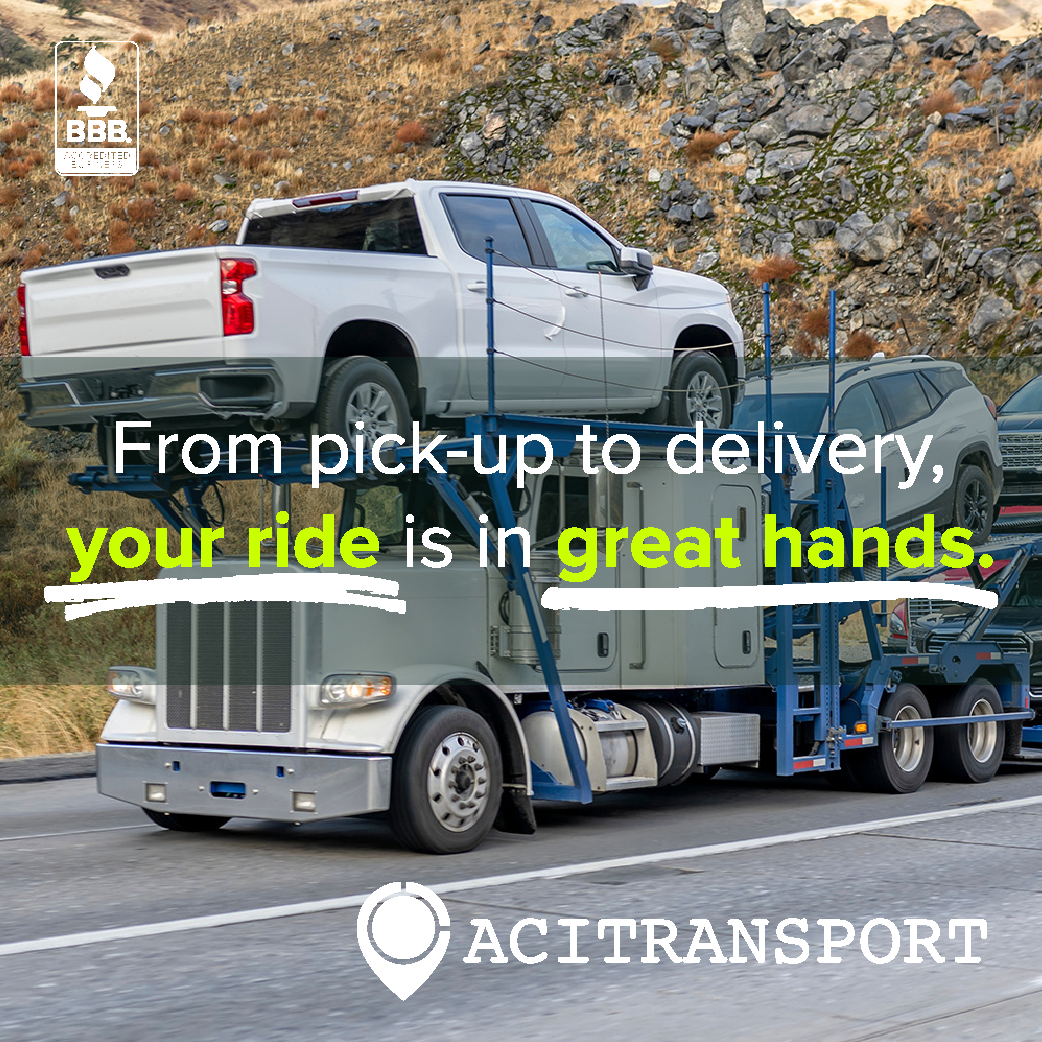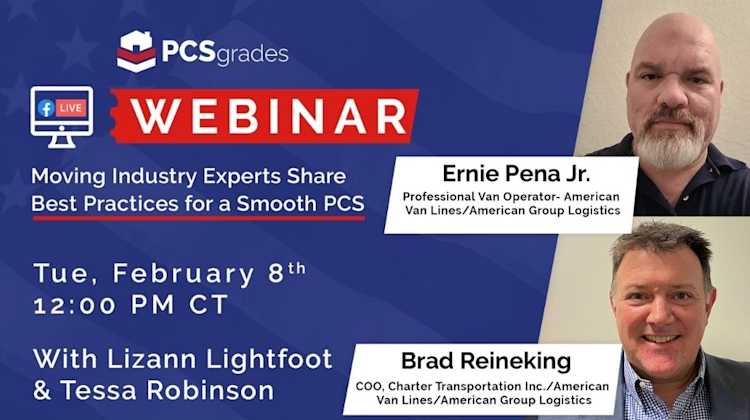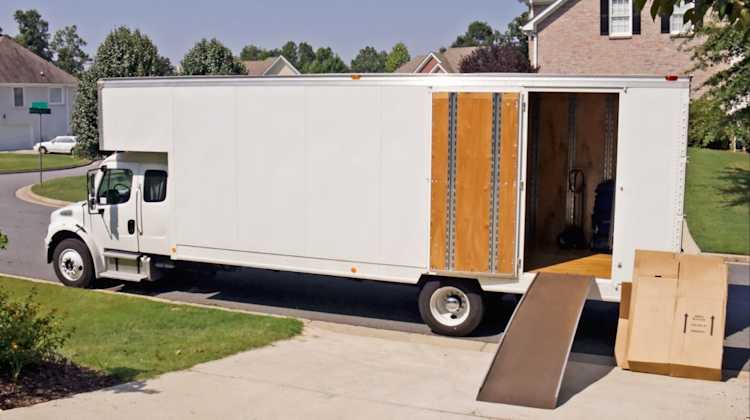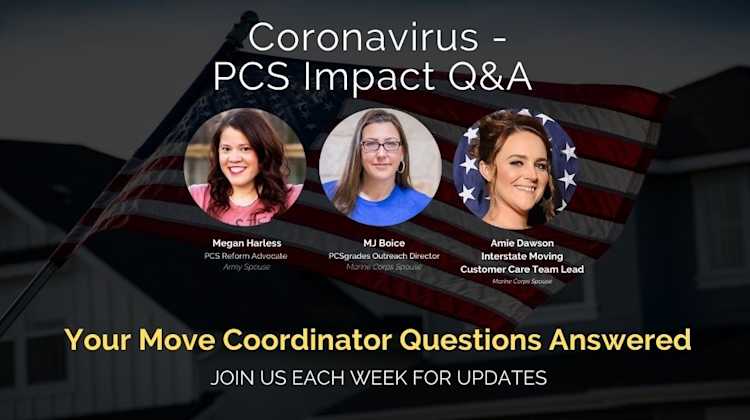Webinar: Movers Tell All: Tipping, Air Tags, and More!
by Lizann Lightfoot - March 9th, 2022
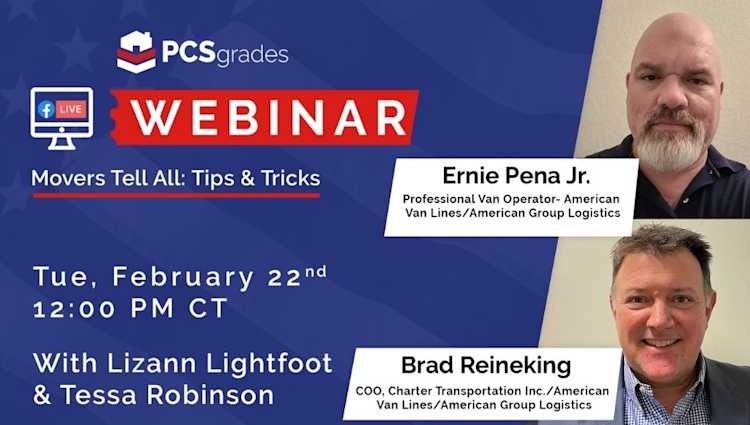
Our Guests from Charter Transportation are back, after their initial webinar interview here.
Ernie Pena: I’m a professional van operator with American Van Lines. I’ve been working in the moving industry since 1985 when my dad put me in the business. I’ve been on both sides of the steering wheel, and I now do 100% military moves, so I understand what our military families go through, and I’m happy to get them where they need to go.
Brad Reineking: I’m the COO of Charter Transportation, and I’ve been in the industry for a little over 30 years. My dad was in the industry for 45 years. The first 20 years of my career, we focused on corporate national accounts. For the past 10 years, I have been with Charter Transportation focusing on military moves.
What should we do with sentimental items during a PCS move?
Brad: If it’s small enough to pack and hand-carry, please keep valuables with you. We recommend packing them up in a suitcase or separate area before the movers arrive. If it is larger items or multiple items that overs will need to pack, try to group them together in one part of the house and point them out to the lead mover. Explain the significance of these particular pieces, so they have knowledge about the items and can pack them with additional care. Usually, the most experienced packer will do the kitchen, so maybe place them there.
Ernie: We understand that moving can be stressful, and we once had someone call the police on our group because someone forgot that she had already packed her jewelry in her suitcase! She later apologized, so we understand the stress level is high, so make yourself a list and write down where you are putting certain items, so you won’t forget steps you have taken.
Brad: I want to address special wrapping like shrink-wrap. The tender of service requires us to use “industry best practices” to protect household goods. Shrink-wrap and crating are more typically used for overseas moves, but if you explain to the movers which items are most fragile or have the most sentimental value to you, then they understand the gray areas of the rules and can provide the best practices to your items.
Should we tip movers? And should we feed them lunch?
Ernie: It’s never an obligation, but it’s always appreciated. After the DoD announced last year that it was no longer required, it became a question I always ask in my pre-move phone call to discuss it before the move, so my guys know whether or not to pack their own lunch. I would say to stay away from pizza if you don’t want your crew napping on the job! I do it in my pre-call, and it can be awkward to discuss, but everyone has to eat, so it’s good to communicate ahead of time, and it’s always appreciated. Our favorite healthy lunch is either Subway or Chick-fil-a. Sometimes people cook us lunch or do a Bar-B-Q. Sometimes, we spend multiple days at one house, so it’s nice to have something to share together.
Brad: If you are going to treat everyone to lunch, make sure you coordinate with the crew leader to make sure it is at the right time. If they are in a really good flow, you don’t want to interrupt that, so try to communicate so everyone takes a break at a convenient time.
Ernie: Tips are always appreciated, but not an obligation. Years ago, we moved a lady from a retirement apartment to an even smaller apartment. And at the end of the day, she gave a $2 tip, and the guys were so grateful because they knew she gave out of her situation. I’ve had a full range of tips: anywhere from $20 to $100. I always disburse it among the crew. So any amount is certainly appreciated.
How should a service member begin to set up their move? And can they request a specific moving company?
Brad: You can request a specific management company that handles multiple TSPs, so if you had a great experience in the past with a particular moving company in the past, you may not be able to use that same company at your current location, but you could work with another company managed by the same management system. So contact that same management company (like Charter) to help them book your move with a TSP that they manage. It can be a cumbersome process, but it is time well-spent. A request job is always an honor, so we want to go out of our way to please that customer. Work with the PPSO (Personal Property Shipping Office) to fulfill that request. You can use Request@CharterTSP.com, then we can work with you to book your move. It’s a lot easier to manage during non-peak season. So reach out as soon as you get orders, and work with your Move Coordinator to get the order entered into the system and booked appropriately.
Let’s discuss communication. How much should the family expect to hear from a driver before their move?
Ernie: It’s important to discuss with your driver or move coordinator as soon as you can. Everyone in this industry gets bombarded, and can get overwhelmed and forget little details. Communicate as much as possible--especially start time. I may use the window of 8-10AM, but will probably pull up to your door close to 7:30 if you are my first move of the day. We want to know what the neighborhood is like in the morning--are there neighbor cars in the street, can we park, etc. When discussing delivery, we want to know your travel plans, how you are getting there, and when you plan to arrive, so we can work with changes. We sometimes have break downs, accidents, etc. Or a shipment ends up being smaller than expected, so now I have to fill my truck with another shipment, which can delay the initial delivery dates. I always give them access to my cell phone and the company phone number.
Brad: Ernie is a very competent driver, so it’s great when you have someone like that assigned to your move. But it’s also important to discuss things with your Move Coordinator. Our industry does a lot of things during peak season like crating, where you can only talk to the Coordinator to know what is going on. We work with no-touch freight haulers that do not communicate with clients. And sometimes, there is a pick-up scenario where we pick up the Household Goods, but don’t have a hauling solution yet. In all of those scenarios, it is so important to work with the Move Coordinator.
If a move is delayed or off-schedule, it’s easy to get backed into a corner. Last year especially, people got COVID, trucks broke down, etc. So any flexibility you can build into your schedule--like flying an extra day after the pack-out--can really help build that flexibility in to give us all more options. If we have to pay an Inconvenience Claim for being late, of course we will do that, but our main concern is to find solutions for each family.
How does the moving industry feel about people using AirTags to track their goods?
Brad: When I first heard that story a few weeks ago, my first thought was “oh no” because a customer was confronting a mover about the location of their shipment. But once I spoke to my company team, we realized it isn’t that big of a deal because we always want to be transparent. If a mover is lying to a customer about the location of their goods, eventually it is going to come out. It’s better to be honest and say, “I know it is going to be late. Don’t check out of your hotel yet, we will pay the Inconvenience Claim.” But that transparency goes the other way too: if you are going to use an AirTag to track something, let the movers know. The best place to put it is in the Parts Box because we should always know where that is.
Sometimes the confusion comes because we are an irregular route carrier, so we have to maximize space in a trailer. Their schedules constantly change. Sometimes drivers have to re-route and go out of their way to pick up additional goods. For example, one member who packed out of Nevada and was moving to Florida was frustrated to learn that their goods were in California. But what they didn’t realize is that the driver had to go to the California ports to pick up another part of the shipment, and then they headed towards Florida to make their delivery on time.
Ernie: If we expect honesty from our drivers, then we need to be honest with them too. I don’t have anything to hide, I’m perfectly fine communicating with my clients and discussing my route and letting them know when I will go out of my way to spend time at home before making a delivery. But some drivers wouldn’t feel comfortable being tracked, and we want to avoid the “Gotcha!” tactic in our community.
When moving overseas, how do you pack differently, and how can military families prepare?
Brad: An OCONUS move is really about density, and how tightly they can pack into wooden lift vans. The tighter it is packed, the less it will shift. International wrapping means using dolphin wrap or paper wrap, then shrink wrap, then putting things into 40-foot shipping containers. So instead of using furniture pads, we will take things apart and make them lay flat. You definitely need to prepare earlier and look up the regulations about what you can ship into your destination country. Some places allow guns, others don’t. Some don’t allow any food--even spices. So communicate with your Move Coordinator way in advance so you can be prepared.
Ernie: The furniture is broken down because density is so important. Those boxes are handled differently. If something isn’t tightly packed, it’s more likely to get damaged. There are temperature extremes, so some things expand or shrink. There’s a higher likelihood of mold. You can put coffee grounds into socks to absorb moisture, or use silica packets to prevent mold. Also take a lot more pictures, so you can show the international moving crews how the furniture is supposed to look. This will help them put it together.
For more questions about what to purge before an international move, read this article on PCSgrades.
Storage in Transit (SIT) is where most PCS loss and damage occurs. What should military families know about this?
Brad: Sometimes, the best course is to avoid it altogether! Last year, we had such high demand for storage that we often couldn’t fulfill request. Families had to choose to wait more than 2 weeks for their Household Goods, or cut their PCS leave short so someone could be there to receive shipments. When things go into storage, especially during peak season, it is difficult to schedule delivery because you are competing with the same movers and trucks who are packing out other moves. Some states, like Alabama, Georgia, Florida, or any remote duty station is going to take longer to get a shipment out of storage.
When shipments go into storage, the most important item is the Parts Box. Try to put the Parts Box as item #1 on the Inventory list. This makes it easier to track.
Ernie: I always put the Parts Box on the High Value Item Sheet. For SIT, I have whoever is accepting the shipment initial that they have received the Parts Box, because that helps with the chain of custody. I started to inventory each package of hardware, so I’ll put a sticker on the parts from the Master bedroom, so everything can arrive back at the destination, If I take something apart and put the screws back into their original place, I note that on the sheet, to avoid claims and extra hassle of going to the store to get more screws.
If you take things apart yourself, I have no way to verify that all the hardware is there. I don’t mind things already disassembled, but I encourage it if you are going into storage, because you won’t have the same crew assembling it, so it’s best if you know how everything goes apart and can be put back together.
Brad: If you are going to want an extra delivery at destination, make sure those items are separated before the crew arrives. Important paperwork, medication, etc should never go into storage. Storage access is very difficult and time-consuming. Don’t wait for the last minute to schedule your delivery out of storage. It will take more than a few days during peak season to get everything out and put a crew together. A door-to-door delivery is the best way to avoid the hassle and delay of storage.
Ernie: Make sure you tell your driver ASAP if you are going to require SIT, because I need to find a location, and some parts of the country black out during peak season. If there is no availability, it affects other people and other deliveries too.
If you do a PPM and hire your own movers, how can you avoid moving scams?
Brad: There are “rogue movers” who essentially steal from people by charging more once your things are packed up, and they hold your items hostage until you pay more. It’s easy to go online and fill out a survey and get a quote right away. But some companies that book your move then turn around and give it to another company. So do your homework and due diligence on moving companies to see if they are legit and handling their own moves. There are tools through the International Association of Movers to verify if a company is certified. TRANSCOM used the DPS system, which isn’t perfect, but its rules are built to protect service members as they move through the DPS system.
Ernie: If your movers show up to your house and they aren’t acting professional, it may cause a temporary headache, but call it off! You can refuse them and book with someone else. It’s better to go through the headache now of re-booking a move than to go through the headaches of dealing with damage or unexpected costs on the other side of the move.
